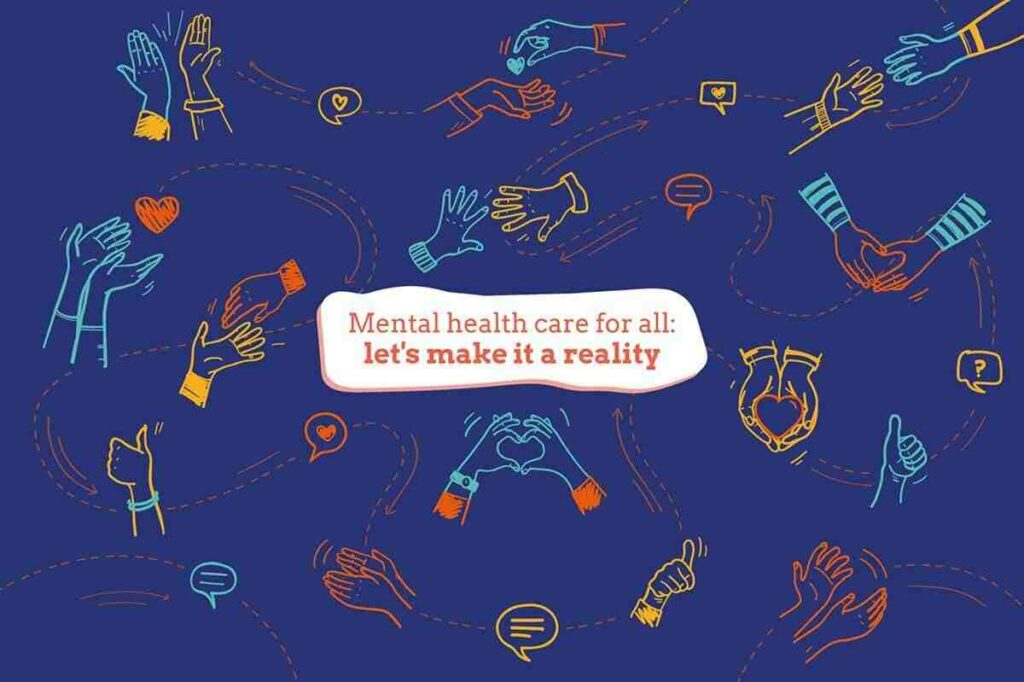Regional
The terrible event occurred as the school van—registered with the number "AS 01 BB 2102"—was traveling to St. Claret School in Borjhar.
<
Self-care, on either hand, does not look the same for everyone. Your go-to stress-reduction strategy might not work for your closest buddy. Even partners in intimate, healthy relationships have varying requirements for companionship, exercise, and leisure time.
To put it bluntly, life does not always go as planned. When you confront challenging circumstances, it can strain your mental health, especially if your general wellbeing is lacking.
When you're in good physical and mental health, it's generally simpler to deal with pressures healthily and productively. That is why self-care — behaviors that enhance psychological and physical wellbeing — is so vital.
Yes, contrary to what the internet may claim, there is no one-size-fits-all self-care checklist. So, how can you know what works best for you?
It is critical to consider the requirements that are currently unfulfilled and the self-care that is particularly suited to address those needs. A good self-care checklist will take into account your unique requirements, habits, and time constraints. It may take some time and work to develop, but you will most likely discover that the effort is well worth it in the long term.
First, here are a few questions to ask yourself during the process
Use these questions to help maintain your plan functional and relevant to your requirements as you get into the intricacies of self-care.
Do I see myself adopting this strategy?
Your self-care strategy will be ineffective if you do not put it into action. Maybe you've heard about the advantages of gardening and want to start one, but you despise dirt and grubs and worms make your stomach turn. In this scenario, an indoor garden with succulents or other low-maintenance plants might be an excellent option.

In this scenario, an indoor garden with succulents or other low-maintenance plants might be an excellent option.
Does money play a factor?
Assume you join an expensive gym to increase your physical activity. If you go once a week, you may feel more burdened by the cost than energized by the additional training.
At the same time, there's nothing wrong with investing in something that truly works.
The expense of ordering takeout on work evenings rather than attempting to cook (not your strong suit) may rapidly pile up. However, if you can afford it and allow you to spend more time with your children, this value may be worth it.
A solid rule of thumb is to ensure that the expense does not add to your stress.
Is it possible that I'm attempting to accomplish too much?
Self-care may become exhausting. Overloading your schedule with wellness-related activities might leave you feeling everything but calm.
Too many obligations, even if they are pleasurable, tend to raise stress because they leave you with little time to sit and process your thoughts – another important aspect of self-care.
Do I have enough time?
When it comes to self-care, the best practice is consistent practice. Self-care should be practiced regularly, not simply when you are overwhelmed.
After all, responding to your needs regularly might help you avoid reaching a position of excessive stress in the first place.
Make self-care objectives that you can fit in with your work and other commitments.
What has previously worked?
Consider a period when you were pretty happy and optimistic about life, even if it was in childhood or late adolescence. What factors led to this frame of mind?
Perhaps it was the lack of obligations or a feeling of fun that you no longer have easy access to. When your own story informs self-care, it is most useful.

He describes how certain memories may help you re-create a sense of peace and wellbeing in your life. When you recollect pure moments from your childhood, they are typically more deeply affecting as you strive to bring that experience into the present.
Begin by assessing your physical requirements.
Physical self-care requirements include tasks that assist your body in functioning properly.
When contemplating physical self-care, examine your needs and any measures you are presently taking to satisfy those needs if you see any areas where you'd like to make improvements, include them in your self-care plan.
Sleep
Most individuals require 7 to 9 hours of sleep every night. Not getting enough quality sleep consistently can have an impact on your mood, focus, and health.
It's very normal not to receive the required amount of sleep, but the good news is that you can frequently increase your sleep quantity and quality on your own.
Healthcare
Setting aside your fear of the doctor's office and getting any problems addressed as soon as possible is an example of good self-care.
If you haven't detected any issues and typically feel great, you may not understand the value of a yearly exam, especially if you're uninsured.

However, regular visits to a healthcare practitioner can help you detect health issues in their early stages before they become serious. Small problems can soon worsen and influence other elements of health, such as sleep and appetite.
Then, go to your mental needs:
Mental requirements include both cognitive and mental health demands. In other words, think about what energizes your brain and keeps you feeling bright.
Stress alleviation
Stress levels have a big impact on mental health.
A smart place to start is to look at what is currently bothering you. How are you dealing with these issues? Are you able to get rid of any? If not, what steps can you take to deal with them more effectively?
Boundaries
Strong boundaries safeguard the time you set aside for yourself, which can help keep stress at bay.
Setting these boundaries might entail:
Cognitive abilities
Expanding and strengthening your intellect may have a significant impact on your overall health.
Improving cognitive abilities might entail:
Therapy
Counseling is a vital element of self-care for many people. Working through any mental health symptoms with a professional can help you experience substantial progress, having both emotional and physical health advantages.
Even if you do not have particular symptoms, professional assistance might be beneficial. Everyone experiences difficulties, and allowing them to pile up may lead to burnout and stress.
If you are feeling overwhelmed for whatever reason, counseling can help you explore coping skills and speak through any issues that are bothering you.
Take frequent breaks
Allowing yourself to zone out and relax from time to time allows your brain to recharge, promoting optimal function.

If your mind wanders frequently, it might signify that you aren't obtaining enough mental relaxation. So, if you're feeling overstimulated, some technological breaks could be in order. To relax your mind, try doodling, outdoor walks, or brief naps.
Putting everything together
Self-discovery is essential for self-care. Learning more about your particular requirements allows you to identify more effective strategies to care for yourself.
After you've determined your own needs, you may start making a list of daily, weekly, monthly, and annual requirements.
Keep in mind that self-care requirements frequently vary throughout time, especially when considering what's going on globally.
A self-care plan established after COVID-19 stay-at-home orders or Black Lives Matter action, for example, may represent particular sentiments and conscious behavior changes that you had not previously addressed.
Self-care practices vary greatly from person to person, and this list is not complete. Other significant factors will most likely emerge as you analyze your demands.
You're probably already taking some productive efforts to satisfy your needs. Pay attention and take note of what you're doing, consciously or unconsciously, to promote your wellbeing when you're feeling your best. Self-care may sometimes be as easy as doing more of this.
Just keep in mind that you know what's best for you at the end of the day.
Leave A Comment